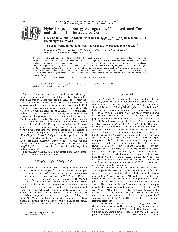摘要
The electrochemical stability of LiCo1/3Ni1/3Mn1/3O2 in a Li+-containing aqueous electrolyte solution is critically dependent on the pH value of the electrolyte solution. It shows the capacity fading upon cycling in the electrolyte solution below pH 11. The mechanism responsible for the capacity fading has been extensively investigated by means of cyclic voltage, ac impedance, charge/discharge, ex situ X-ray diffraction, and chemical analysis. It was found that LiCo1/3Ni1/3Mn1/3O2 and its partly charged product is chemically stable in the low pH electrolyte solution, while it is not electrochemically stable during the discharge process in which the proton cointercalation parallel to the lithium ion intercalation occurred, but the intercalated proton cannot be reversibly extracted during the charge process. The intercalated proton limits the intercalation of lithium ion, thus resulting in capacity fading.
- 出版日期2007
- 单位复旦大学
